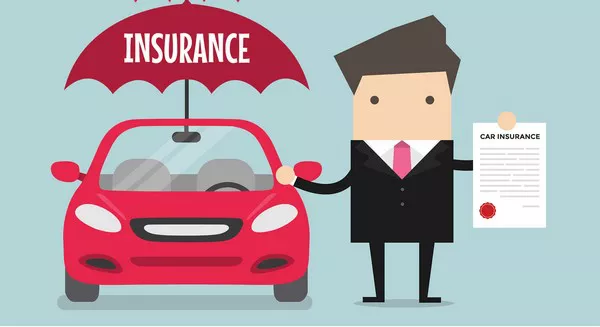Third-party car insurance is an essential aspect for car owners who want to protect themselves financially from any harm their vehicle might cause to others. In this article, we will take a closer look at what third-party car insurance is, how it works, and what it covers.
What is Third-Party Car Insurance?
Third-party car insurance is the minimum legal requirement for driving on public roads in many countries. The policy covers damages or injuries caused by your vehicle to other people or their property. It does not cover damages to your own vehicle or injuries you sustain in an accident.
How Does it Work?
When you buy a third-party car insurance policy, you pay a premium to your insurer. In return, your insurer promises to cover the cost of damages or injuries that you may cause to other people or their property while driving your car. If you are involved in an accident, you should immediately report it to your insurer and provide all the necessary details about the incident.
Once your insurer receives the claim, they will investigate the matter and determine if your policy covers the damages or injuries caused by your vehicle. If your policy covers the costs, your insurer will pay the claim to the affected party. However, if your policy does not cover the costs, then you will be personally liable for the expenses.
What Does it Cover?
Third-party car insurance generally covers the following:
1. Bodily Injury Liability: This covers medical bills, lost income, and other expenses related to injuries suffered by the other driver or passengers.
2. Property Damage Liability: This covers the cost of repairing or replacing the other person’s vehicle or property damaged in the accident.
3. Personal Liability: This covers other expenses that may arise due to the accident, such as legal fees or court costs.
4. Uninsured/Underinsured Motorist Coverage: This coverage protects you in case you are involved in an accident with a driver who does not have insurance or has insufficient coverage.
What Does it Not Cover?
Third-party car insurance does not cover the following:
1. Damages to Your Own Vehicle: This means that if your vehicle gets damaged in an accident, you will have to pay for the repairs yourself.
2. Injuries to You or Your Passengers: If you or your passengers are injured in an accident, your third-party insurance policy will not provide any compensation.
3. Intentional Damage: If you deliberately cause damage to someone else’s vehicle or property, your third-party insurance policy will not cover the costs.
4. Non-Accidental Damages: Third-party car insurance only covers damages caused by accidents. It does not cover damages from natural disasters, theft, or vandalism.
What are the disadvantages of third party car insurance?
While third-party car insurance offers basic coverage for car owners, there are some disadvantages to consider when choosing this type of policy. Here are some of the main drawbacks:
1. Limited Coverage: The primary disadvantage of third-party car insurance is that it only covers damage or injury you cause to others and their property. It does not provide any coverage for damages to your own vehicle or injuries you may sustain in an accident.
2. Low Payouts: Depending on the level of coverage you choose, third-party car insurance payouts can be relatively low. This means that if you are involved in a major accident, the cost of repairing or replacing the other person’s vehicle or property may exceed your policy limits.
3. Higher Out-of-Pocket Costs: With third-party car insurance, you will likely have higher out-of-pocket expenses if you are involved in an accident. This could include paying for repairs to your own vehicle or covering any medical expenses that are not covered by your policy.
4. No Personal Injury Coverage: Third-party car insurance policies do not provide any coverage for injuries sustained by you or your passengers in an accident. This means that you would need to pay for your own medical costs if you were injured in a crash.
5. Limited Options: Many insurance providers offer limited options with third-party car insurance policies. For example, you may not be able to add additional coverage or customize your policy to suit your needs.
6. Higher Risk: Drivers who opt for third-party car insurance policies may face higher risk due to limited coverage and higher out-of-pocket expenses. This could lead to financial strain if you are involved in an accident and need to pay for damages or medical expenses that exceed your policy limits.
In conclusion, while third-party car insurance provides basic coverage for car owners, it may not be suitable for everyone. It is important to carefully consider the advantages and disadvantages of this type of policy before making a decision. If you are looking for more comprehensive coverage, you may want to consider other options such as a comprehensive car insurance policy or adding additional coverage to your third-party policy.
Conclusion
Third-party car insurance is an important type of insurance that protects car owners from financial losses due to damages or injuries caused to others while driving their vehicles. It is a legal requirement in many countries and is a relatively inexpensive way to ensure that you are covered in case of an accident. While it does not cover damages to your vehicle or injuries to you or your passengers, it provides peace of mind knowing that you will not be financially liable for any harm caused to others. Be sure to read the policy carefully and understand what is and is not covered before purchasing a third-party car insurance policy.


